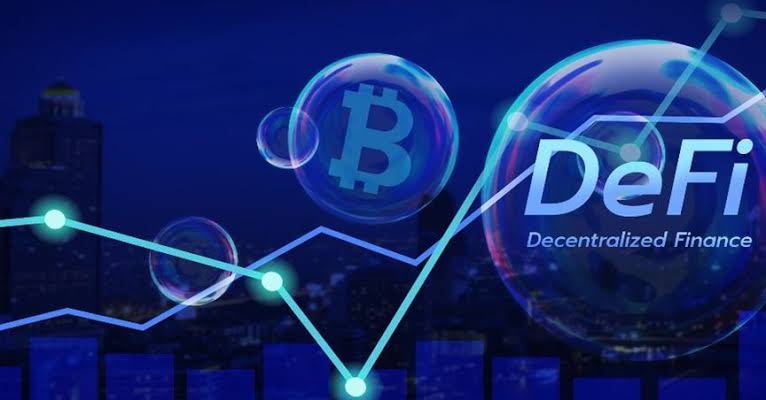In the ever-evolving landscape of finance, a new player has emerged in recent years that’s been causing quite a stir – DeFi, or Decentralized Finance. It’s a term that has been buzzing in financial circles and is changing the way we think about traditional banking and investing. But what is the effect of DeFi on our economy, and why should we pay attention?
Understanding DeFi
DeFi is the abbreviation for Decentralized Finance, a financial ecosystem built on blockchain technology. Unlike traditional financial systems, DeFi operates without intermediaries like banks, allowing for peer-to-peer transactions. It encompasses a wide range of financial services, including lending, borrowing, trading, and more, all conducted on blockchain platforms.
Empowering Financial Inclusion
One of the most significant impacts of DeFi is its potential to foster financial inclusion. In many parts of the world, traditional banking services are either limited or inaccessible. DeFi can change this by providing financial services to anyone with an internet connection. This inclusion can lead to economic empowerment for underserved populations.
Eliminating Middlemen
DeFi is often associated with decentralized applications or dApps. These applications, built on blockchain, allow users to trade, lend, and borrow assets without the need for intermediaries. This reduces costs, cuts down on transaction times, and minimizes the need for trust in a centralized institution. The result? Greater efficiency and accessibility in financial transactions.
Global Accessibility
The beauty of DeFi lies in its borderless nature. Traditional financial systems are often confined by geographical boundaries and regulatory constraints. DeFi, on the other hand, operates on a global scale, allowing anyone with an internet connection to participate. This can lead to a more connected global economy with fewer barriers.
Yield Farming and Staking
DeFi offers new ways to earn passive income through concepts like yield farming and staking. Users can lock their assets in smart contracts and receive rewards in the form of interest, tokens, or fees. This can incentivize saving and investment, potentially increasing the overall capital available for economic growth.
Risks and Challenges
While DeFi brings numerous benefits, it’s not without its challenges. Security concerns, regulatory issues, and smart contract vulnerabilities are among the potential risks. As this technology continues to evolve, addressing these challenges will be crucial for its long-term sustainability.
The Bottom Line
DeFi’s effect on the economy is a complex interplay of advantages and challenges. It has the potential to foster financial inclusion, reduce costs, and connect a global audience. However, it’s not a magic solution and must be approached with caution. As this financial revolution continues to unfold, it’s essential to stay informed, adapt to changes, and assess the impact it has on our economic landscape. DeFi is more than just a buzzword; it’s a force that’s reshaping the way we think about finance and its role in our lives.
Conclusion
the effect of DeFi on our economy is both exciting and challenging. This decentralized financial revolution holds the promise of empowering individuals, promoting financial inclusion, and reducing the influence of traditional intermediaries. It has the potential to connect a global audience, enabling more accessible financial services on a scale we’ve never seen before.
However, it’s not without its risks and challenges. Security concerns, regulatory issues, and the need for ongoing innovation and adaptation are all part of the DeFi landscape. As we move forward, it’s crucial to strike a balance between embracing this financial transformation and addressing the potential pitfalls.
DeFi is not just a buzzword; it’s a dynamic force that’s reshaping our financial world. To harness its potential for the benefit of our economy, we must remain vigilant, informed, and open to change. The ripple effect of DeFi on our economic future is still unfolding, and it’s a journey worth closely following as it continues to shape the way we manage and grow our finances.

